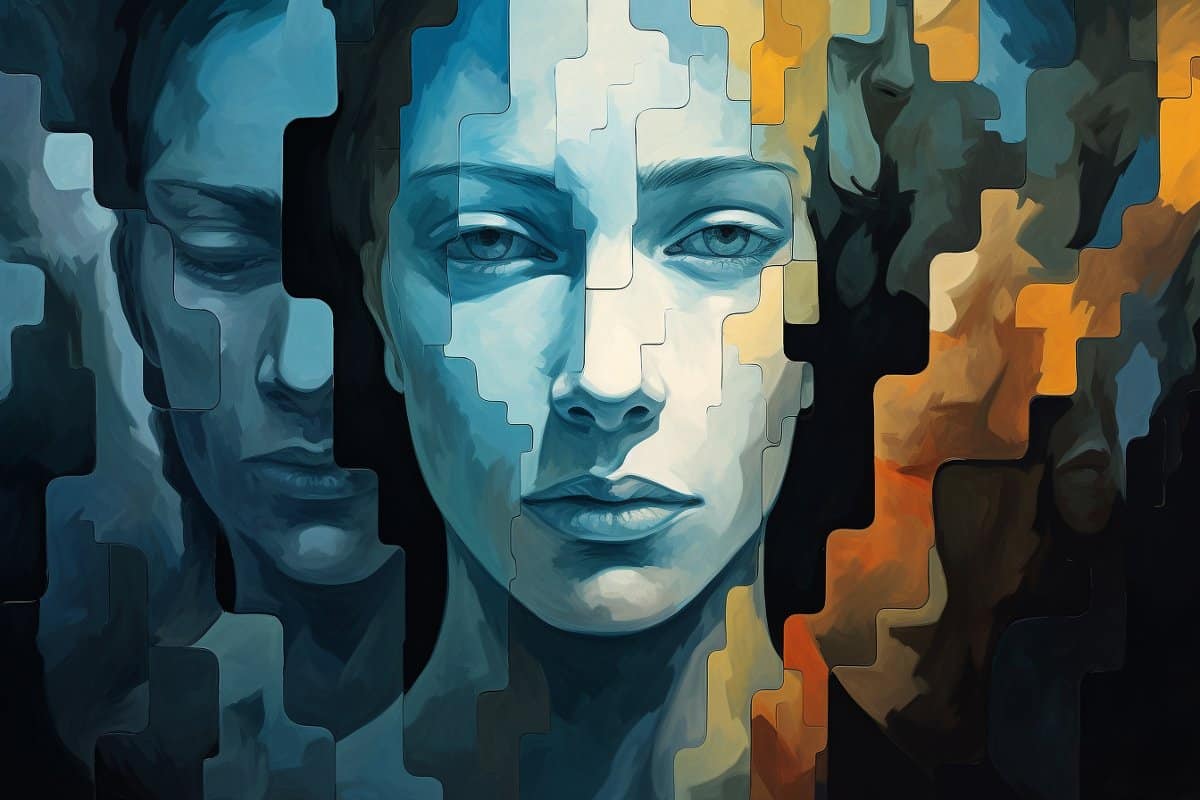
What is dissociative identity disorder?
Dissociative identity disorder is a psychological condition where disturbance to a person’s sense of identity causes them to feel or be observed by others to have 2 or more separate personalities. It was previously known as ‘multiple personality disorder’.
Dissociative identity disorder is a type of dissociative disorder — where there is a disconnect between your thoughts, memories and feelings and sense of who you are.
Dissociative identity disorder is usually long-term and is a response to extreme trauma.
Dissociative identity disorder may be incorrectly mixed up with schizophrenia. While they are both mental health disorders, schizophrenia does not feature multiple or ‘split’ personalities, but has other symptoms like delusions and hallucinations.
What are the symptoms of dissociative identity disorder?
A person with dissociative identity disorder can go through dramatic changes in behaviour and speech patterns from one occasion to the next.
The person switches from identity to identity, or feels the presence of 2 or more people living inside their head. Each identity may have its own name and characteristics such as voice, expressions and mannerisms. The main characteristics of dissociative identity disorder are:
- A disruption of identity, where the person has 2 or more distinct personality states. This is different to having an imaginary friend, which is not a sign of a mental health problem. It is also different to ‘possession’ by a spirit or entity in some cultures or religions, which is not considered a disorder.
- A change in identity that involves altered behaviours, emotions, thoughts, memories and perceptions — these may be observed by others or felt by the person.
- Repeated and excessive gaps in memory (amnesia) for everyday events, important personal information, large portions of childhood or traumatic events. The person may not be able to recall memories or people they have met from when they were in another personality state.
What other disorders may people with dissociative identity disorder have?
People with dissociative identity disorder may also have other mental illnesses such as:
- anxiety
- depression
- psychosis
- post-traumatic stress disorder (PTSD)
- borderline personality disorder
- somatic symptom disorder
- eating disorders
- obsessive-compulsive symptoms
They may also self-harm, feel suicidal or have a substance abuse disorder.
What causes dissociative identity disorder?
The main cause of dissociative identity disorder is severe and repeated trauma in childhood. This may include chronic severe physical or sexual abuse or wartime situations.
The trauma triggers a person to disconnect and dissociate from their life, perhaps as a protective mechanism to help them cope.
How is dissociative identity disorder diagnosed?
If you or someone you care for has symptoms that could suggest dissociative identity disorder, it is best to see a psychiatrist or clinical psychologist with experience of this condition. They will want to talk to you, or the person with the symptoms, to understand what is going on. Your GP should be able to refer you to a suitable mental health professional.
There is no single test or symptom that makes the diagnosis clear and simple. Dissociative identity disorder has some symptoms in common with some other mental health disorders, including borderline personality disorder, histrionic personality disorder and post-traumatic stress disorder.
How is dissociative identity disorder treated?
The main form of treatment for dissociative identity disorder is long-term psychotherapy. This usually involves frequent and regular sessions with a therapist for a number of years. This approach takes the person through several stages of treatment. The aim is to improve symptoms and functioning, with reductions in dissociation, distress, self-harm and suicidal thoughts.
Many people with dissociative identity disorder will also have other mental disorders such as anxiety and depression. There is no medicine specifically for dissociative identity disorder, though these other mental health disorders are often treated with medicine.


